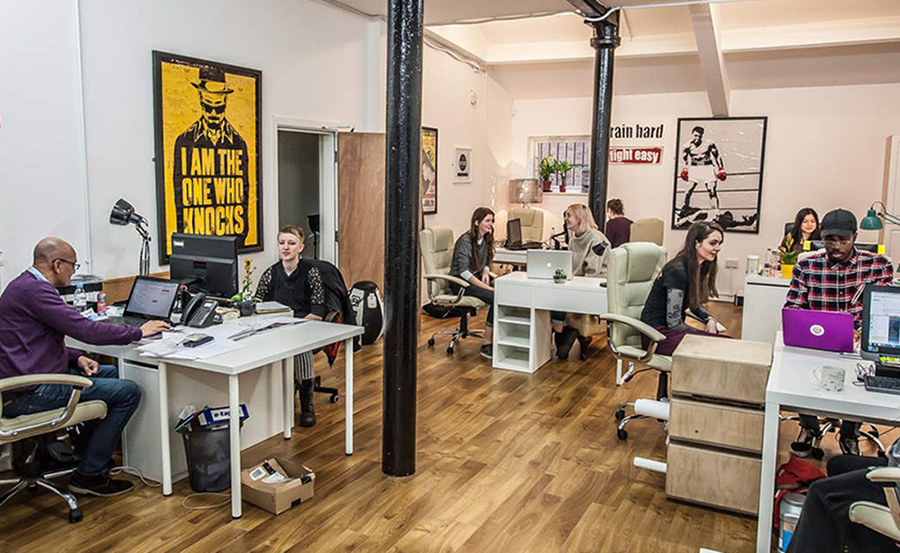As numbers of COVID19 cases rile up, more companies have been forced to close up and adopt a remote structure. While many companies are finding it hard to adopt a remote structure, some have perfectly blended into the current situation using tools like Slack, dropbox, zoom, and notion to navigate their work processes and manage team members.
The work from home policy is representing a major shift in the Nigerian work culture, as it means no more long commutes to work, or getting stuck in traffic, but more personal and family time. It is, however, an unfamiliar phase especially among the not so tech-savvy workers.
- Co-working spaces which are used by innovators, founders, and entrepreneurs as an alternative place to work, have seen a dramatic increase in its usage since its inception a few years back. There have been enterprise employees who want a flexible working environment and teams using it as their on-demand meeting room.
As restrictions on movement take hold across the country, coworking spaces have been forced to become non-existent too – these spaces have become ghost towns. Unlike traditional offices, coworking spaces afforded workers and startups an opportunity to rent a shared working space without the weight of upfront full payments.
In fact, according to research, one of the reasons people co-work is solely for the combination of a well-designed work environment and a well-curated work experience. However, with the lingering fear of the pandemic going on for many more months, working patterns may fundamentally change in ways that are not good for the business model of coworking spaces.
(READ MORE: Nigeria to lose over $160 million to cocoa, cashew exports over COVID-19)
The future is uncertain, and another arraigns of concern are if the current situation taking the world aback is it the death of coworking spaces? The recent lockdown has led many working spaces to close up, although it is a short-term convenience, there is also an economic disadvantage.

Co-creation Hub, Passion Incubator and several other hubs in the Nigeria’s tech capital city of Lagos, have shut down to abide by the directives of the government. For many, the coworking space model afforded them more control of their time more than working from home, and it felt like they were part of a community. With the COVID-19 pandemic and the government increasingly enforcing social distancing, the idea behind coworking is being threatened.
However, threat of the continuity of co-working spaces has gone beyond the risk of losing revenue to COVID-19-neccessitated lockdown, it is in the possible outcome of people and startups getting used to working from home and losing interest in coworking spaces. As working from home has its limitations, so would co-working after the COVID-19 crisis, but it hardly looks like a model that would fade:
- Coworking spaces don’t only serve the need of remote workers but provide a crucial structure for startups and new businesses would consistently emerge. Coworking spaces will always remain a cushion to support the operations of startups and innovators who are at their idea stage and will still see the need of the model to minimize costs.
(READ MORE: Businesses most affected by COVID-19 outbreak)
- Being part of a community never goes out of fashion. The combination of a well-designed work space and a well-curated work experience are reasons people co-work. Social networking and local connections with others are a big reason why people will still pay to work in a communal space. Although interactions are not compulsory, a coworking space can give such options for people who wish to interact and for those who don’t want to.
- Unlike traditional working spaces, people choose coworking spaces because there is little direct competition or internal politics. There is no need to put up a work persona to fit in, rather they get to work among others in a range of different fields, ventures and projects. So, the coworking space model will still thrive because it offers a collaborative space. It will increasingly be relevant for a broader range of people from freelancers, entrepreneurs and the tech industry, who collaborate on projects.
- Coworking spaces afford workers the opportunity to have autonomy and equally enjoy a form of structure while working from home may give workers too much independence and can actually cripple productivity since there is always the possibility of a lack of routine.

















Covid19 is the first spiritual war against humanity ready to deletes the entire races